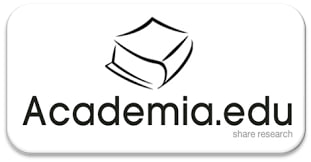Ethical Principles
The Journal of Management and Business Solutions (JMBS) is committed to maintaining the highest standards of integrity, transparency, and ethical conduct throughout the publication process. The journal adheres strictly to the ethical guidelines established by the Committee on Publication Ethics (COPE) and expects all stakeholders—including authors, reviewers, editors, and publishers—to follow responsible research and publishing practices. This Publication Ethics Statement outlines the principles and responsibilities guiding all participants in the editorial process.
1. Ethical Responsibilities of Authors
Authors submitting manuscripts to JMBS are expected to uphold the following ethical principles:
1.1 Originality and Plagiarism
-
Authors must submit only original work that has not been published elsewhere and is not under consideration by any other journal.
-
All forms of plagiarism, including verbatim copying, improper paraphrasing, self-plagiarism, and using others' ideas without proper attribution, are strictly prohibited.
-
Manuscripts are screened using iThenticate plagiarism detection software prior to peer review. Any indication of plagiarism will result in immediate rejection and notification to the author’s institution.
1.2 Data Integrity and Falsification
-
Authors must present their data truthfully, accurately, and transparently.
-
Fabrication, falsification, or manipulation of data, figures, or results is considered scientific misconduct and will lead to article rejection and potential retraction.
-
If applicable, authors must retain their raw data and make it available to the editorial team or reviewers upon request.
1.3 Redundant or Duplicate Submission
-
Authors must avoid submitting the same manuscript, or substantial parts of it, to multiple journals simultaneously.
-
Redundant publication—publishing the same data or study across different journals with minimal changes—is considered unethical and unacceptable.
1.4 Authorship and Acknowledgments
-
All listed authors must have made a substantial contribution to the conception, design, execution, or interpretation of the study.
-
Individuals who made significant contributions but do not meet the authorship criteria should be acknowledged appropriately in the Acknowledgments section.
-
The corresponding author must ensure that all co-authors have read and approved the final manuscript and agreed to its submission.
1.5 Conflict of Interest Disclosure
-
Authors must disclose any potential financial, institutional, or personal conflicts of interest that might bias their work.
-
Sources of funding and all financial or non-financial relationships that may influence the research must be explicitly stated.
1.6 Human Subjects and Ethical Approval
-
Research involving human participants must adhere to ethical standards and must have obtained prior approval from an appropriate institutional review board or ethics committee.
-
A statement confirming ethical approval and informed consent must be included in the manuscript.
1.7 Corrections and Retractions
-
If an author identifies a significant error or inaccuracy in their published article, they are obligated to promptly inform the editor and cooperate in publishing a correction, erratum, or retraction as appropriate.
2. Ethical Responsibilities of Reviewers
Peer reviewers are critical to ensuring the quality and integrity of academic publications. Reviewers for JMBS are expected to:
2.1 Confidentiality
-
All submitted manuscripts must be treated as confidential documents.
-
Reviewers must not share, copy, or distribute the manuscript or disclose its content to others.
2.2 Objectivity and Constructive Feedback
-
Reviews must be conducted objectively and provide constructive, unbiased, and respectful feedback to help authors improve their work.
-
Reviewers should avoid personal criticism and should evaluate the work based on its academic merit.
2.3 Competence and Timeliness
-
Reviewers must accept assignments only if they possess the necessary expertise in the subject matter and can complete the review within the requested time frame.
-
If a reviewer feels unqualified or unable to meet the deadline, they should inform the editor immediately.
2.4 Conflict of Interest
-
Reviewers must disclose any actual or potential conflicts of interest, including financial, academic, or personal relationships with any of the authors, and recuse themselves from the review process if necessary.
2.5 Ethical Oversight
-
If reviewers suspect plagiarism, data fabrication, or other ethical misconduct, they should notify the editorial office immediately with detailed observations.
3. Ethical Responsibilities of Editors and Editorial Board
The editorial team of JMBS, including the Editor-in-Chief, Associate Editors, and the Editorial Board, is responsible for overseeing the ethical and professional management of the journal.
3.1 Fair and Transparent Decision-Making
-
Editors must evaluate manuscripts based on their scholarly content, originality, clarity, and relevance to the journal’s aims—regardless of the authors’ race, gender, institutional affiliation, nationality, or political beliefs.
3.2 Confidentiality
-
Editors must maintain the confidentiality of all submitted manuscripts and related review communications.
-
Manuscript details must not be disclosed to anyone other than the corresponding author, reviewers, and editorial team members.
3.3 Conflicts of Interest
-
Editors must not handle manuscripts in which they have a conflict of interest arising from competitive, collaborative, or personal relationships with the authors or institutions.
-
In such cases, the manuscript will be reassigned to an impartial editor or associate editor.
3.4 Editorial Independence
-
Editors are solely responsible for accepting or rejecting manuscripts based on academic merit, ethical soundness, and reviewer feedback.
-
Decisions must not be influenced by commercial interests or external pressure from third parties.
3.5 Handling Misconduct
-
In cases of suspected or proven scientific misconduct, including plagiarism, fraudulent data, authorship disputes, or ethical violations, the editorial board will take appropriate action in accordance with COPE guidelines.
-
Actions may include rejection of the manuscript, retraction of the published article, notification to authors’ institutions, and banning authors from future submissions.
4. Publisher’s Responsibilities
As the journal’s publisher, JMBS is committed to:
-
Supporting editorial independence and decision-making free from commercial influence.
-
Ensuring long-term archiving of published content and maintaining accessibility through the journal’s website and external repositories.
-
Implementing technological tools (e.g., iThenticate) to support the detection of plagiarism and ensure ethical compliance.
-
Promoting editorial transparency, integrity, and accountability in accordance with international publishing standards.
5. Allegations of Misconduct
JMBS handles all allegations of unethical behavior or academic misconduct seriously and transparently. When an allegation is raised:
-
The editorial team will conduct an initial investigation confidentially.
-
Authors and/or reviewers involved will be given an opportunity to respond.
-
If misconduct is confirmed, appropriate corrective actions—including article retraction, issuing of errata, or notification to third parties—will be taken.
-
The journal reserves the right to notify institutional authorities, funders, or professional bodies when necessary.
6. Retractions, Corrections, and Expressions of Concern
In accordance with COPE and best practices:
-
Retractions will be issued when there is evidence of unreliable findings due to misconduct or honest error.
-
Corrections (errata or corrigenda) will be published when small but significant errors are identified post-publication.
-
Expressions of concern may be issued if serious doubts arise and conclusive evidence is not yet available.
Transparency Statement on the Use of Artificial Intelligence
In light of the growing use of artificial intelligence (AI) tools in academic writing, translation, data analysis, and editorial processes, our journal is committed to ensuring full transparency and ethical responsibility in the use of such technologies throughout the submission, peer review, and publication processes.
To uphold the highest standards of academic integrity and align with the recommendations of the World Association of Medical Editors (WAME), our journal has adopted the following principles regarding the use of AI:
-
Transparent and Responsible Use: Authors are required to clearly disclose any use of AI tools—such as ChatGPT, Grammarly, DeepL, or others—at any stage of manuscript preparation (e.g., literature review, results description, discussion writing, language editing, or translation). This disclosure should appear in the acknowledgments section or a footnote on the title page.
-
AI Tools Cannot Be Authors: According to the WAME guidelines, AI tools cannot be credited as authors of scientific manuscripts. These tools do not meet authorship criteria because they lack legal responsibility and the ability to consent to publication or accountability for the content.
-
Human Oversight and Validation: All AI-generated content must be critically reviewed, edited, and validated by human authors. The final responsibility for the accuracy, coherence, and integrity of the manuscript lies solely with the human contributors.
-
Use in Peer Review: Peer reviewers using AI tools to assist with manuscript evaluation must ensure they do not share confidential information with such tools. Any AI use during review must comply with confidentiality and data protection standards.
-
Misuse and Ethical Violations: The inappropriate use of AI—such as generating fabricated content, falsifying data, or committing plagiarism—will be treated as a serious ethical violation and subject to disciplinary action in accordance with publication ethics.
-
Policy Review and Updates: This policy will be reviewed regularly in response to evolving AI technologies and ethical considerations. Any updates will be published on the journal’s official website.
Our journal is committed to transparency, integrity, and accountability in scientific publishing. We fully adhere to the WAME statement entitled “Recommendations on Chatbots and Generative Artificial Intelligence in Relation to Scholarly Publications.”
For the complete text of WAME’s recommendations, please visit:
https://wame.org/page3.php?id=106



